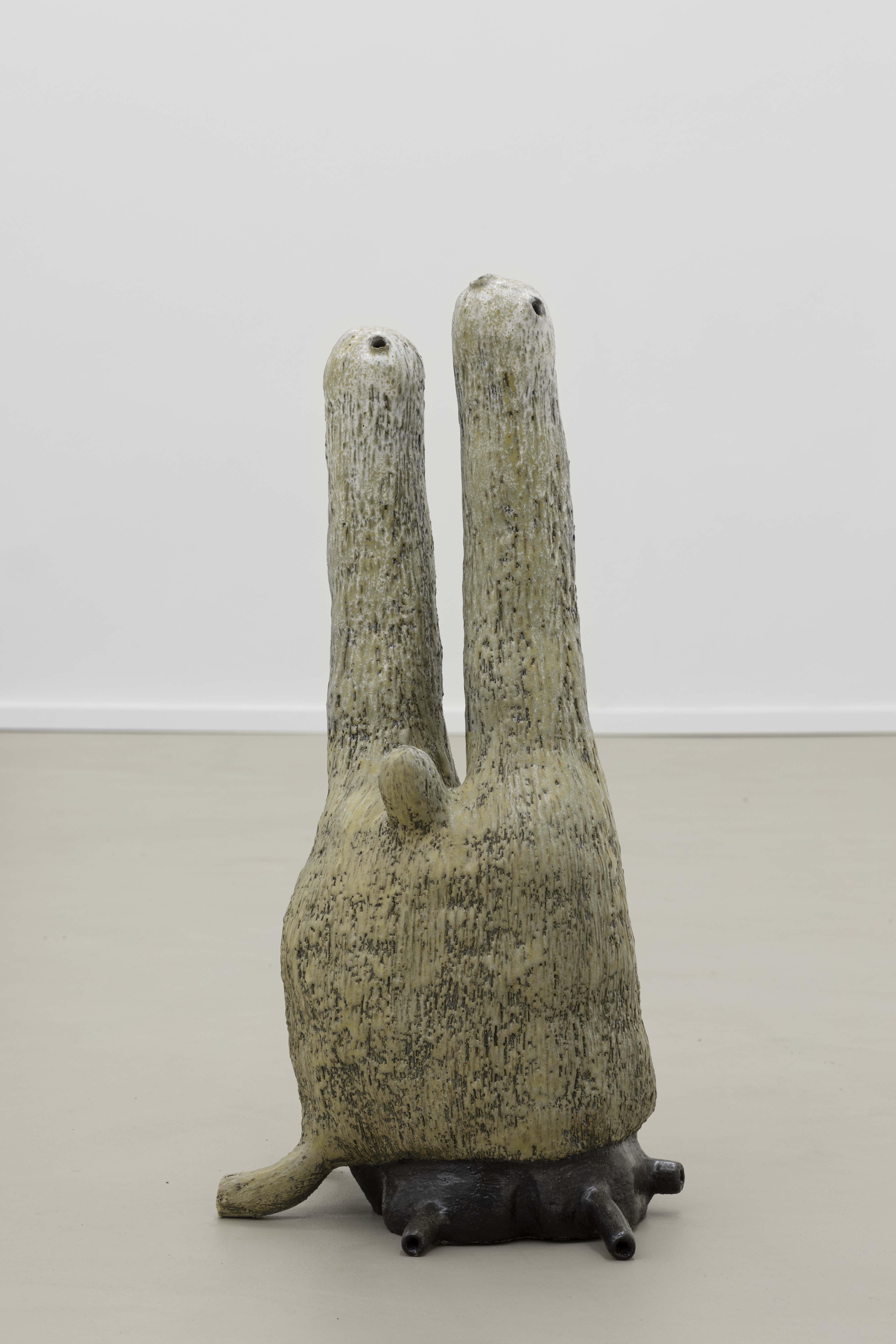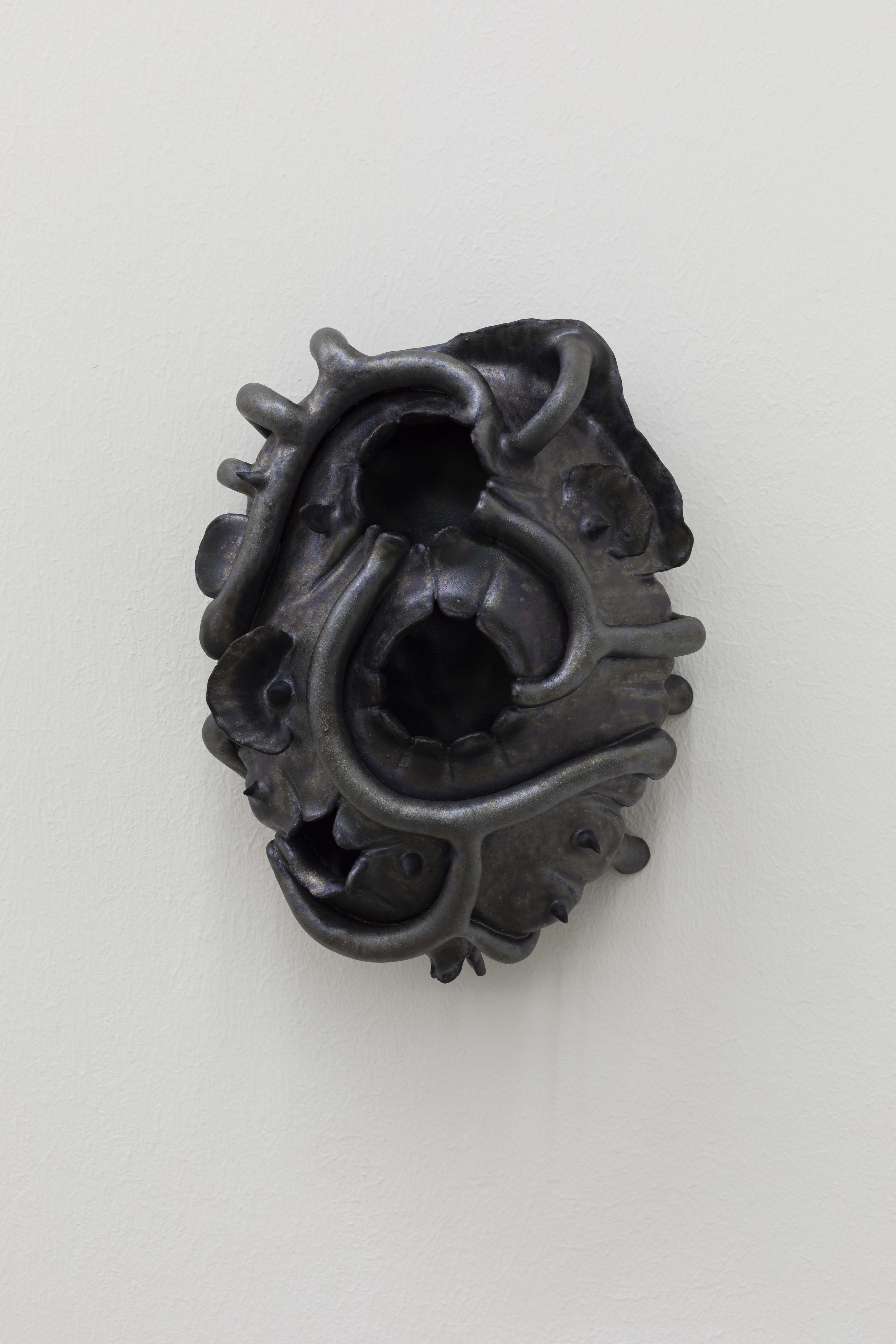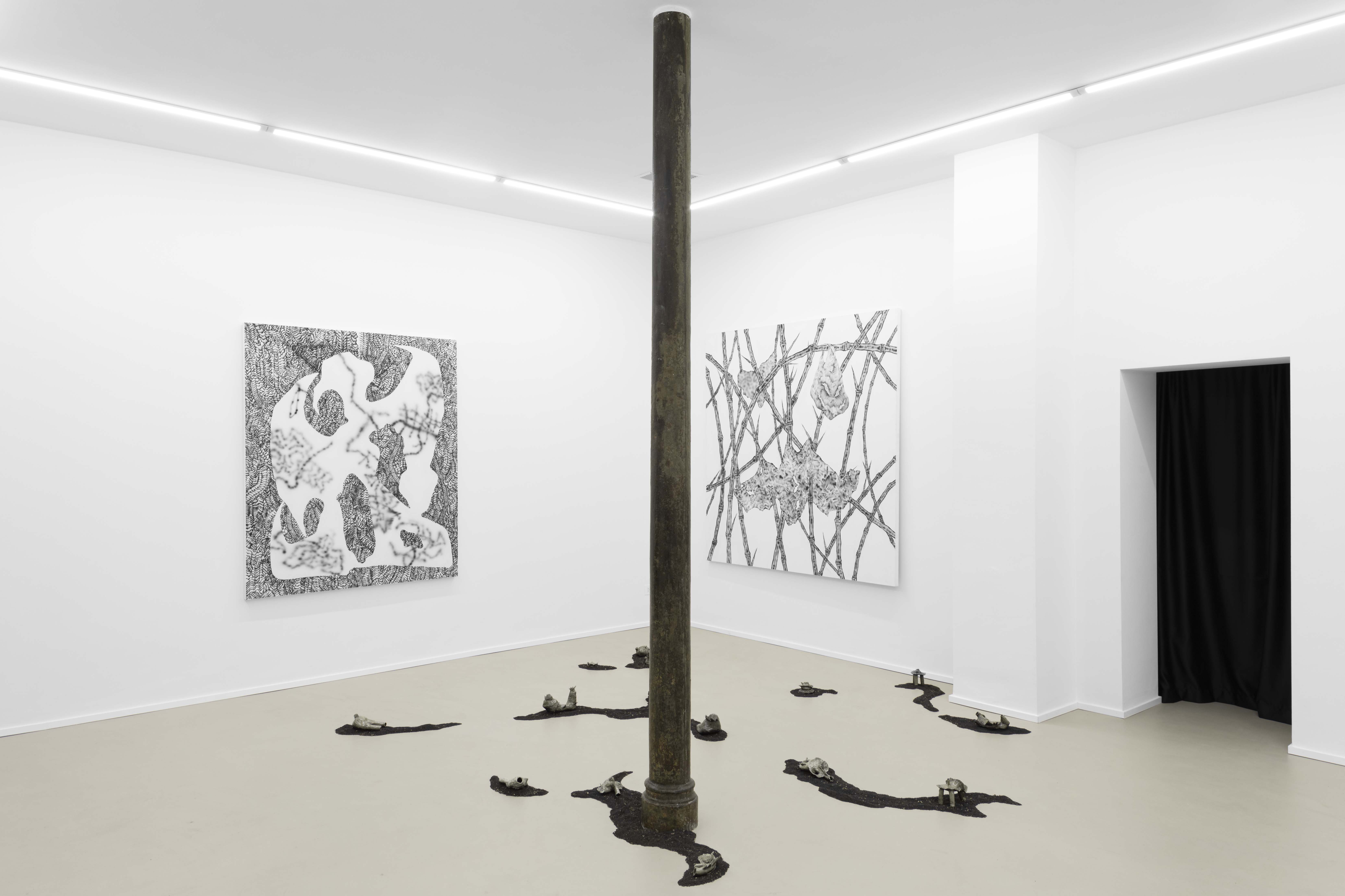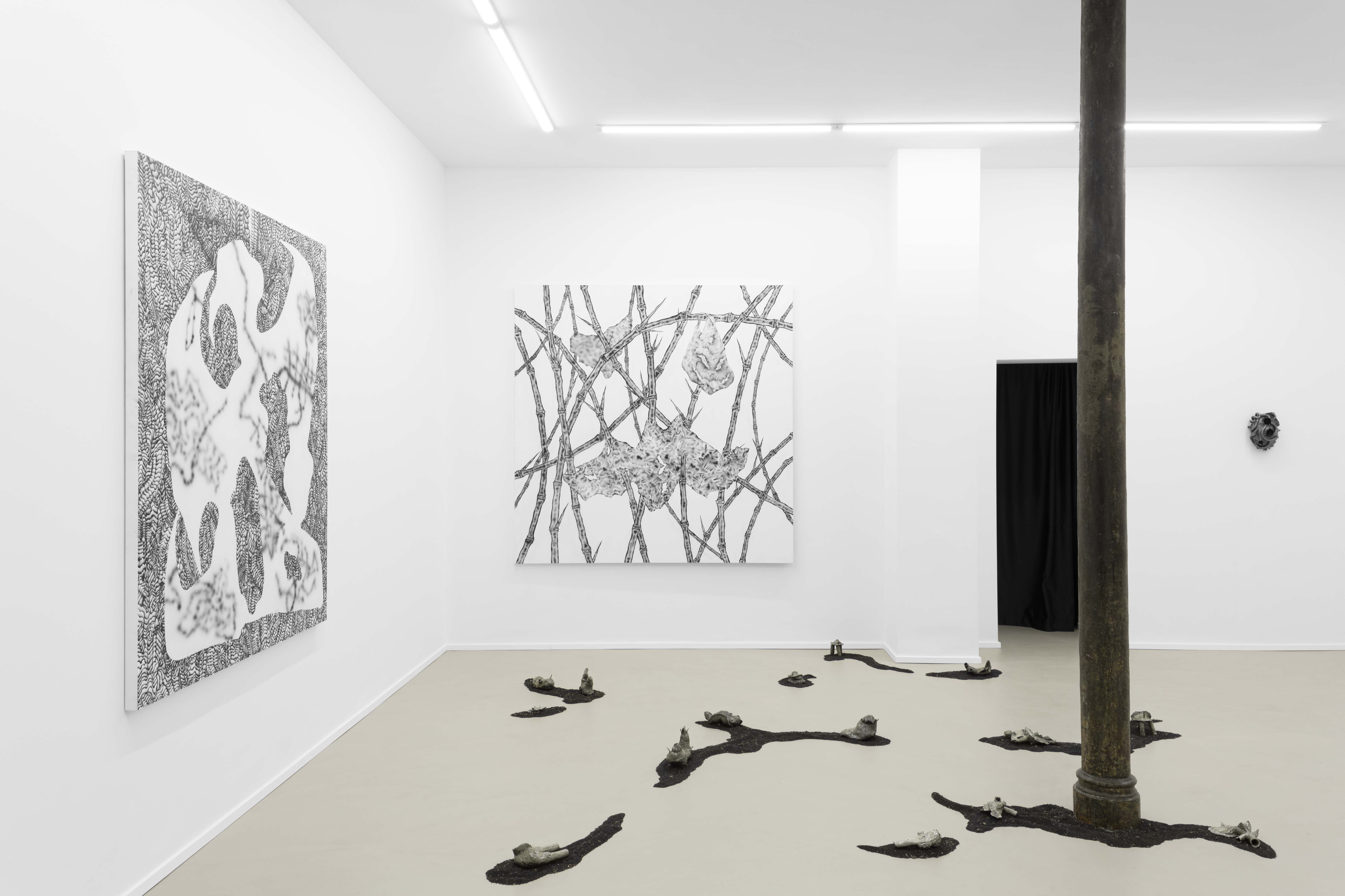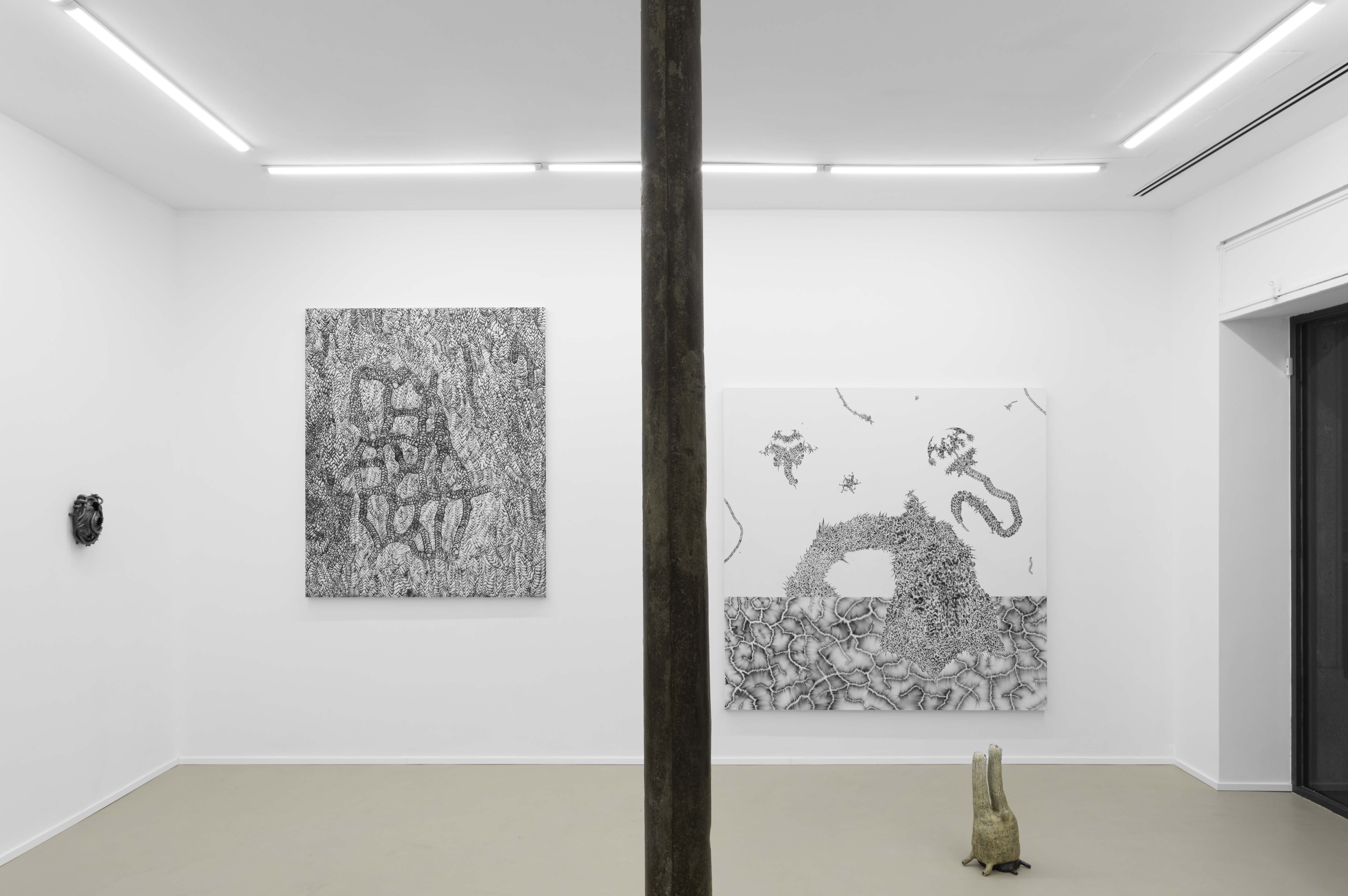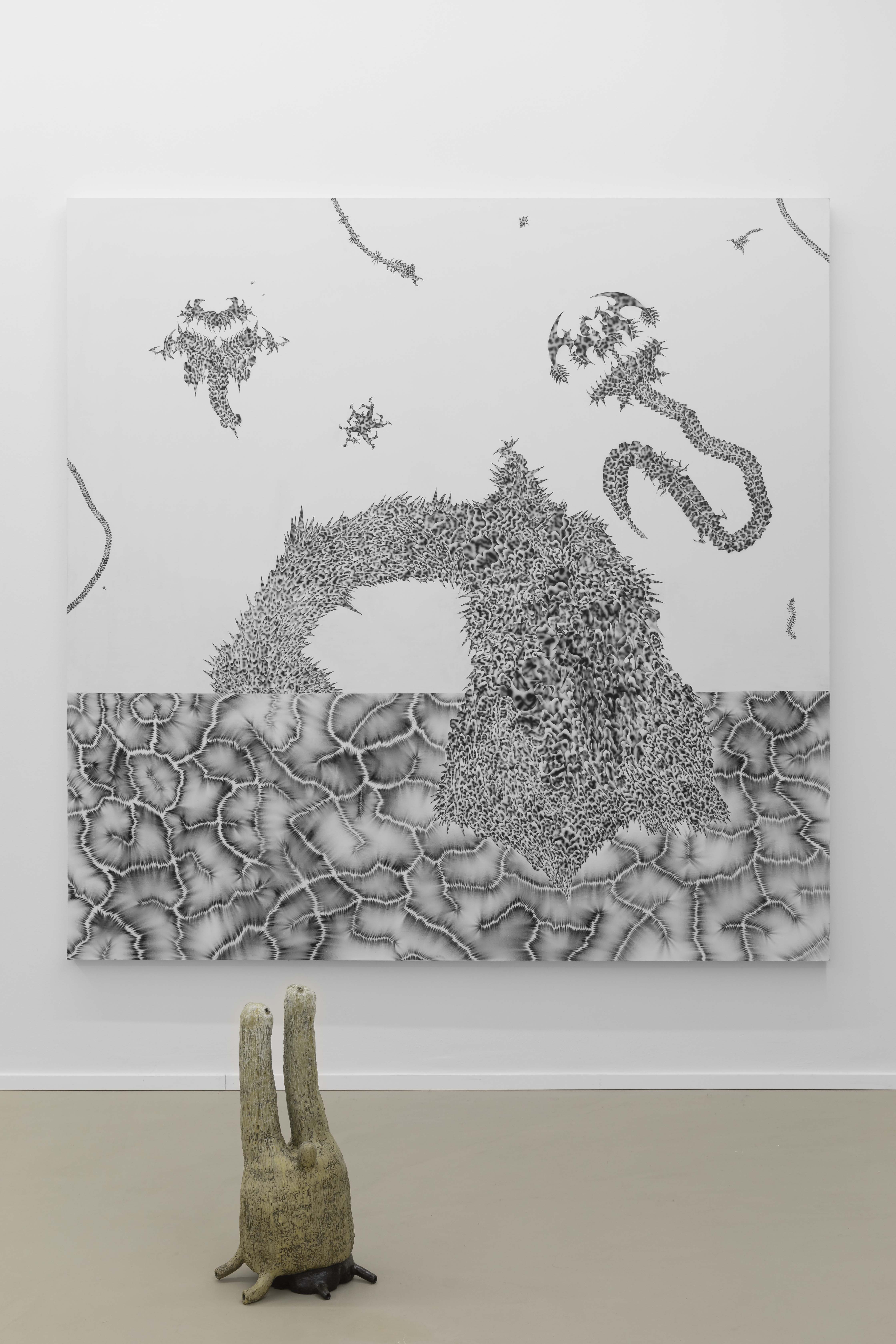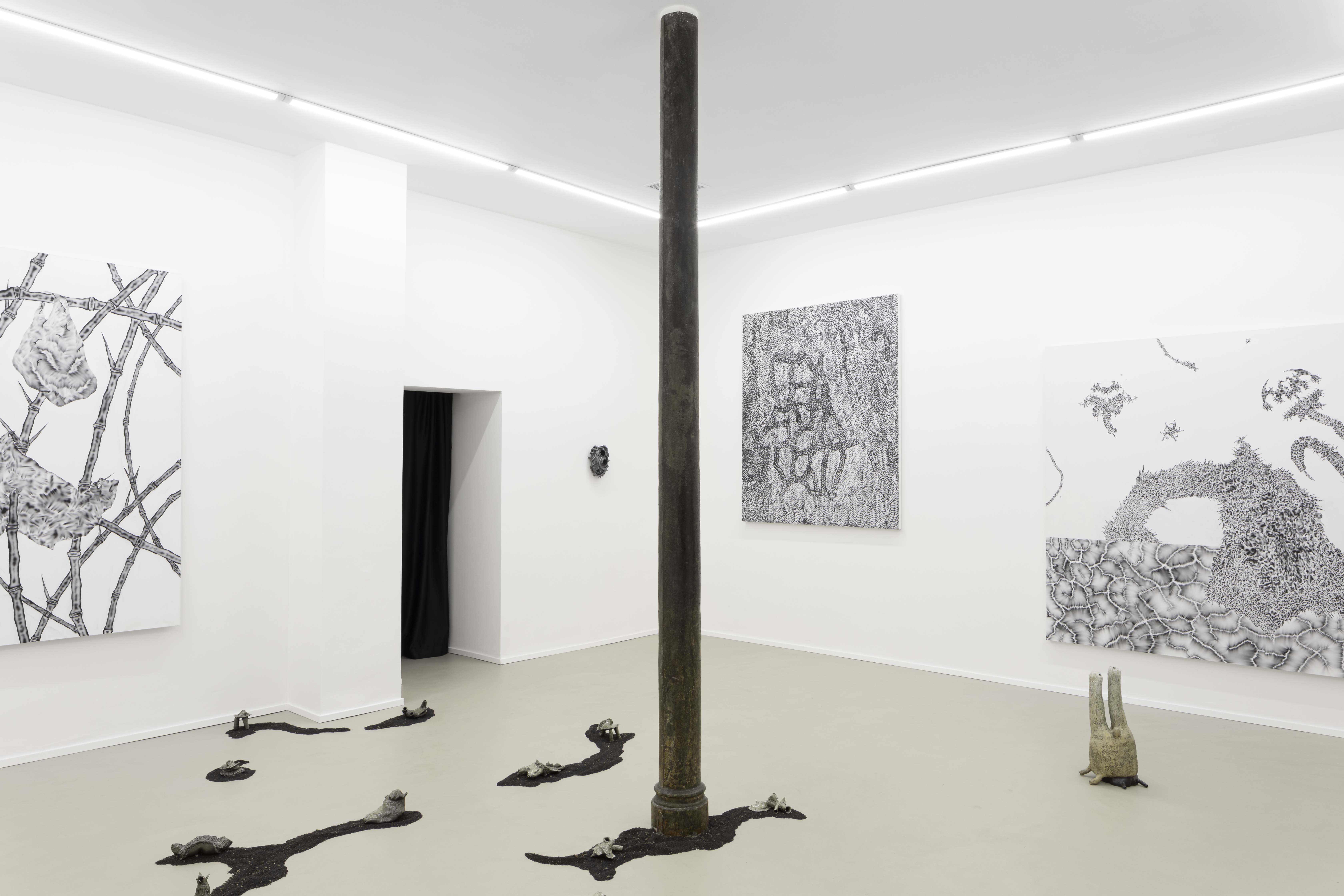Artists: Stach Szumski and Francesco Pacelli
Title: Holobiont Rhapsody
Venue: eastcontemporary, Milan, Italy
Curated by eastcontemporary with accompanying text by Claudia Contu
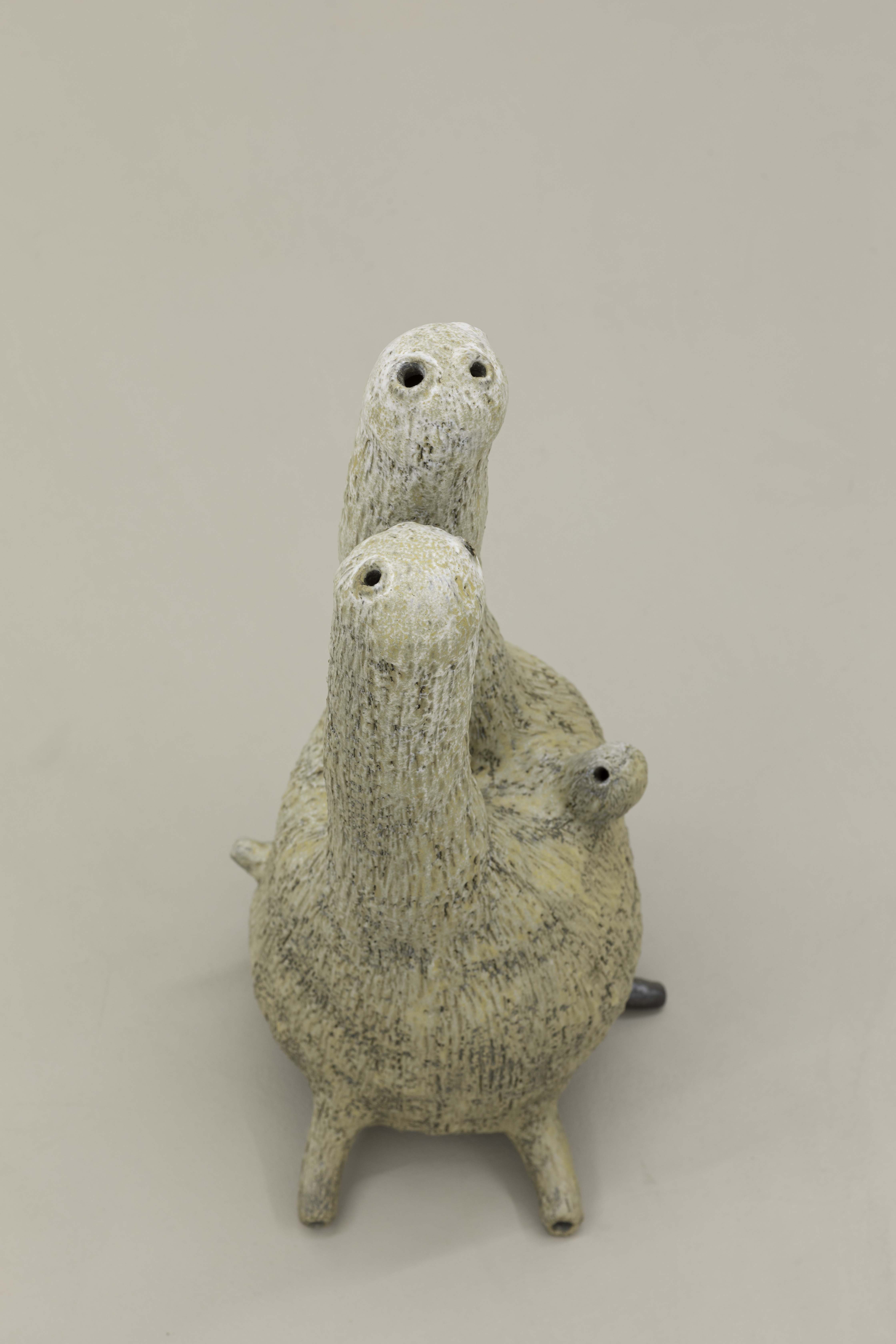
Introduction
They are microscopic in size and invisible yet they possess a great power. They are always at work, acting discreetly in the shadows while forging unbreakable bonds and shaping all living beings. You will not see them, but they are everywhere. From cradle to grave, they are our fellow travellers. They might terrify us as we mostly know them for their destructive power of transmitting diseases, yet they are our allies having protective potential, too. Bacteria and fungi, these ancestral creatures constitute the kingdom of microbiota to which we owe our life. They are little yet crucial beings determining what happens to the cycle of all matter. They live within our bodies, educating our immune system and helping us with the nutrient absorption. They regulate entire ecosystems and create symbiosis with all living beings on the Earth.
The exhibition ‘Holobiont Rhapsody’ by Stach Szumski and Francesco Pacelli reflects upon this complex web of relationships between us and those who came here before us – the microbiomes. The exhibition title suggests this endless network of symbiotic interactions that links us – the individuals in its entirety. A term ‘holobiont’, coined by the American evolutionary theorist Lynn Margulis in the early 1990s, indicates a ‘host’ organism and the associated communities of microorganisms that live in symbiosis with it.
The four immense paintings by Stach Szumski and sculptures by Francesco Pacelli, which are literally springing up from the pavement of the gallery, will infest the sterility of our white cube, bringing closer to us these infamous troublemakers co-habiting our bodies and contributing to our life more than one could imagine. This time, let us fantasize about them as allies and not enemies.
Agnieszka Faferek and Julia Korzycka
Text by Claudia Contu
What can we learn from bacteria and other microorganisms that live on our phones, or from the mushrooms lingering between the moss and lichens in our forests? Let us journey beyond our all-too-human world, made up of capitalist cycles of production and consumption, where people’s identities are bound to their Amazon carts and social media profiles. Let us wander to the close world of animals, bacteria and microbiomes — a world situated right in front of our eyes and yet often overlook. The exhibition space of eastcontemporary, temporarily closed due to current COVID-19 regulations, becomes a peephole that we can gaze through in an attempt to magnify the shape of our microscopic neighbours through the works of Polish artist Stach Szumski (b.1992, Gdansk) and the Italian Francesco Pacelli (b.1988, Perugia).
The four acrylic paintings by Stach presented at eastcontemporary hold a direct link to the microscopic. The canvasses titled The Issue of Office Bacteria are inspired by the clash of spasmodic cleanliness in office environments and the vitality of microscopic life forms contained within. When looking at them, we are surprised by the powerful monochrome images, looking extremely familiar and alien at once. They seem to be frightening at first, but they are certainly not threatening. Exhibiting Stach’s work on bacteria is ironic at the very least, given the current health situation. Yet, by looking at the majestic pieces, we might be inspired to step away from the aspect of fear that the spikes depicted and the words ‘bacteria’ or ‘virus’ now evoke. It might be worth asking, instead, what we have gained from the virus and the deceleration occurred through lockdown. How did we change in response to this new rhythm? I think the bacteria on our skin have felt this deceleration too.
Similarly, to bacteria, mushrooms and lichens live next to one another in symbiosis — helping one another to thrive together. Their connections create networks that are invisible to the human eye but make their colonies organised and in constant communication. Francesco’s work aims at giving an aesthetic form to this natural entanglement. More so, his sculptures, which look extremely abstract at a first glance, hint at the organic structures that, with their shapes, curves, thorns, make us wonder what the microscopic world in a forest might be like or feel like if our human senses could tackle it. The soil is the epidermis of the Earth. It is crossed by nerves, pores, fluids. It is the matter through which mushrooms communicate with one another and sense each human that steps on it. This earthly radio system draws abstract lines that Francesco aims to synthesize through sculpting, holding matter, pushing matter, leaving traces. Who knows, perhaps one day he will be able to speak the language of lichens and mushrooms.
Claudia Contu
BIOGRAPHY
STACH SZUMSKI
Stach Szumski (born in 1992 in Gdańsk, Poland; lives and work between Warsaw and Lower Silesia), a visual artist graduated from the Media Arts Department of the Academy of Fine Arts in Warsaw. In his works Szumski uses different media such as painting, drawing, sculptures and digital graphics. He works with different environments by creating installations, site-specific projects and large-format murals on decaying buildings in public space. Szumski attributes his visual language to practices associated with post-graffiti, folklore aesthetics, extinct alphabets and para-archeological forms. His works are often the results of interdisciplinary projects based on local research or are carried out during his numerous residencies and travels around the world. In 2015 he founded together with Karolina Mełnicka the Nomadic State Project – an artistic collective and fictional nomadic micro-state.
Solo shows (selection): Jathilan Epilepsy, PamojaGoods in Kraków, PL (2019), The Issue of Office Bacteria, Polana Institute in Warsaw, PL (2018), In Search of the Meaning of Life, BWA Wroclaw, PL (2018), Tourrorism Allinclusive, 9/10 Gallery / Poznań, PL (2017).
Group exhibitions (selection): All the worlds futures, off-site show at Nihilist Church in Pstraze, PL (2020), Humid Intimacy, Gallery A.M.180 in Prague, CZ (2019),The Last Place on Earth, Polana Institute at Museum of the Earth, Warsaw, PL (2019), Sudeten Ziggurat in Jelenia Góra, PL (2019), Snoozin Gutssss, Neverneverland in Amsterdam, NL (2019), Anthropocenic Bamboo Survivor, Kyoto Art Center, Kyoto, JP (2019), FORCE FIELD Emerging Polish Artists, Starak Foundation, Venice, IT (2019), The Walls Have Ears by Inside Job and Nomadic State, Trafostacja Sztuki in Szczecin, PL (2019), Post-thermomodernisation studies with Satoshi Kawata, Dom Książki in Poznań, PL (2019),What is Enlightment? (with Nomadic State), MoMA in Warsaw, PL (2018), Terrible Kissers, Museum of Art, Odessa, UA (2018), Chain Letter, Hutt Collective Gallery in Nottingham, UK (2018), Prognosis for the Era of Postmodernization, CCA Ujazdowski Castle in Warsaw, PL (2017), Love, Memory, Curiosity, Polana Institute at Geological Museum in Warsaw, PL (2017), Late Polishness, CCA Ujazdowski Castle in Warsaw, PL (2017), Temporary Storeroom – Drawing: Case Study 2, PLATO, Ostrava, CZ (2017).
Residencies (selection): Sesama in Yogyakarta, Indonesia (2020), RazemPamoja Foundation.
BIOGRAPHY
FRANCESCO PACELLI
Francesco Pacelli (born in 1988 in Perugia, Italy; lives and works in Milan) graduated in Design at Politecnico University. He worked as assistant for Roberto Cuoghi and collaborates with the artistic direction of the project space Dimora Artica in Milan. His research takes origin from multiple spheres of contemporary culture, proposing formal syntheses with imaginative and deliberately ambiguous features, assuming unrealistic but potentially plausible tones for the spectator. Through repeated semantic stratifications and a continuous tension for experimenting with materials, the work puts together collective imaginery and the personal sphere in a loop of visual references, destabilizing and familiar at the same time. The theme of the relationship between human beings and their evolutionary perspectives of hybridization with technology, the nuances of meaning between natural and artificial, physicality and virtuality and the subtle dichotomy between appearance and reality are among his main investigation areas.
Solo shows (selection): Notturno, Una Vetrina, Rome, IT 2020, Fishy fishy fishy X, Rehearsal, Milano, IT 2019, Abisso elastico, Current project, Milano, IT 2019, Ballata Vogelkop, Display, Parma, IT 2018.
Group exhibitions (selection): Luna Calante, Residenza La Fornace, Lodi, IT 2020, Libertà, Castello di Lajone, Quattordio, IT 2020, Virtual Archipelago, Re-act Contemporary Art Laboratory, 2020, Baitball (01), Palazzo San Giuseppe, Polignano a mare, IT 2020, Tetsuo’s body, 9H Hotel Otemachi, Fuchu (Tokyo), JP 2019, Formes Vivantes, Musée National Adrien Dubouché, Limoges, FR 2019, Innesti, Walk-in studio festival, Milano, IT 2019, Screen tearing, Dimora Artica, Milano, IT, 2019, Naturalia e Artificialia, Cà Marsala, Bologna, IT 2018, Future artists, Nerve Visual Gallery, Londonderry, Northern Ireland 2016.
Residencies (selection): Residenza La Fornace, Lodi, IT 2020, Re-act Contemporary Art Laboratory, 2020
